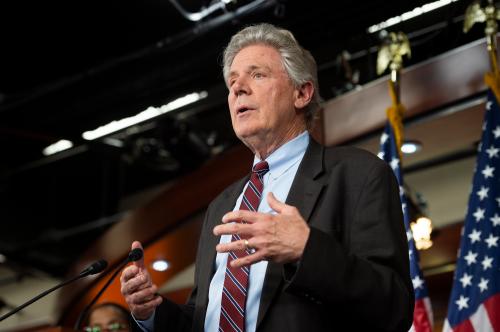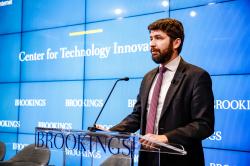In the tech policy space, people with disabilities face many problems. Artificial intelligence (AI) biases have created disparate outcomes in automated hiring, while surveillance technology such as automated test proctoring software fails to accommodate students with disabilities. Emerging technologies such as augmented reality, virtual reality (AR/ VR), and automated vehicles either do not work for people with disabilities or actively put them in danger.
On TechTank, guest host Samantha Lai, research analyst at the Brookings Institution, is joined by Lydia X.Z. Brown, Policy Counsel for Disability Rights and Algorithmic Fairness for the Privacy and Data Project at the Center for Democracy and Technology, and Director of Policy Advocacy, and External Affairs for the Autistic Women and Nonbinary Network; Alex Engler, a Governance Studies fellow at Brookings and adjunct professor and affiliated scholar at Georgetown’s McCourt School of Public Policy; and Henry Claypool, Technology Policy Consultant for the American Association for People with Disabilities and National Policy Expert at the Brandeis University Heller School for Social Policy and Management’s Community Living Policy Center. Together, they will discuss how people with disabilities are affected by existing technology, while looking into necessary legislation and protection to rectify these wrongs.
You can listen to the episode and subscribe to the TechTank podcast on Apple, Spotify, or Acast.
TechTank is a biweekly podcast from The Brookings Institution exploring the most consequential technology issues of our time. From artificial intelligence and racial bias in algorithms, to Big Tech, the future of work, and the digital divide, TechTank takes abstract ideas and makes them accessible. Moderators Dr. Nicol Turner Lee and Darrell West speak with leading technology experts and policymakers to share new data, ideas, and policy solutions to address the challenges of our new digital world.







Commentary
PodcastHow does tech policy fall short in protecting people with disabilities? | The TechTank Podcast
August 8, 2022